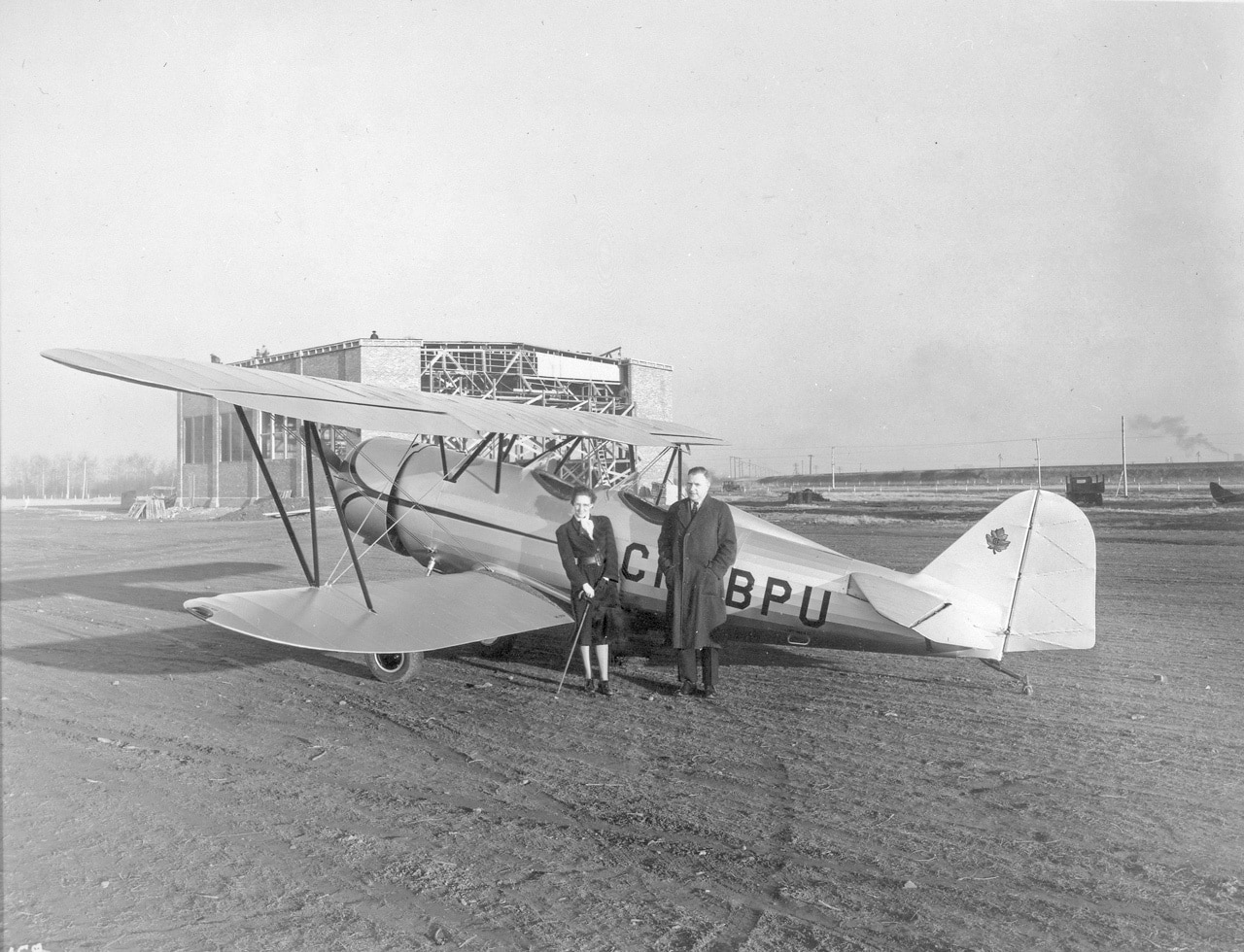
Fighting the good fight
Elsie MacGill shattered barriers as the world’s first female aeronautical engineer and played a pivotal role in streamlining aircraft production.

Elsie MacGill shattered barriers as the world’s first female aeronautical engineer and played a pivotal role in streamlining aircraft production.
“Queen of the Hurricanes” could be a fantasy novel or superhero moniker. But the real story is perhaps more amazing than either of those. Elsie MacGill (MSE Aero ’29) was the first woman in the United States (and likely the world) to earn a master’s degree in aeronautical engineering. She was also the world’s first female aeronautical engineer, leading aircraft design and production and introducing innovations that helped the Allies win World War II.
MacGill earned the name “Queen of the Hurricanes” when, at 35, she led a military aircraft production line, overseeing a staff of 4,500 and streamlining wartime operations as aeronautical factories rapidly expanded. Under her direction, it took only a year for Canadian Car and Company (Can Car) to produce the first Hawker Hurricane fighter aircraft. Soon, Can Car was building three or four planes every week and had become a wartime success story.
Can Car factories ultimately produced thousands of Hawker Hurricane for the British Royal Air Force. MacGill also designed and tested a new training aircraft—the Maple Leaf Trainer II. Today, she is considered a war hero, representing Canada’s economic transformation during the war.
MacGill also introduced de-icing controls and a system for fitting skis for snow landings––solutions that enabled the Hawker Hurricane to operate during the winter. While she never learned to fly herself, she accompanied the pilots on all test flights—even the dangerous first flight—of every aircraft she worked on.
“War effort is a man staying and working an extra hour, or two, or five hours a day,“ MacGill said. “It is a woman cutting short her noon hour to get back to finish the job. It is someone taking home his problems to solve them after dinner. It is someone coming back in the evening to finish an assignment. War effort is something which is as microscopic in the unit as the individual, but as mighty in the sum total as an army.”
After the war, MacGill worked in aeronautical consulting, and in 1946 she became the first woman to serve as technical advisor for the International Civil Aviation Organization, where she helped to draft international airworthiness regulations for the design and production of commercial aircraft.
MacGill began her education at the University of Toronto; in 1927, she became the first woman to graduate from the university with a degree in electrical engineering. While at school, she was struck with polio. Doctors told her that she should expect to live the rest of her life in a wheelchair. Instead, she learned to walk again before earning her master’s degree from U-M.
MacGill’s grandmother, Helen MacGill, was a journalist and a well-known women’s rights advocate throughout Canada. Elsie’s mother, also named Helen, was the only woman in her college class in 1889, the first female graduate of the University of Toronto, and the first woman in the British Empire to receive a degree in music. She became Canada’s first female judge in 1917.
Elsie MacGill published “My Mother, the Judge: A Biography of Judge Helen Gregory MacGill” in 1955. Delving into her mother’s philosophy, experience and idealism inspired Elsie to commit herself even more to women’s rights in the 1960s, advocating for abortion laws, fair wages and paid maternity leave. In 1971, MacGill was awarded the Order of Canada for “services as an aeronautical engineering consultant and as a member of the Royal Commission on the Status of Women.”
“Perhaps because of my mother, I never forgot, throughout my long career, that many women in Canada do not have access to the opportunities I enjoyed,” she wrote shortly before she passed away in 1980. “I have received many engineering awards, but I hope I will also be remembered as an advocate for the rights of women and children.”
—Adapted from a story originally published on Michigan Engineering’s bicentennial website in 2017.